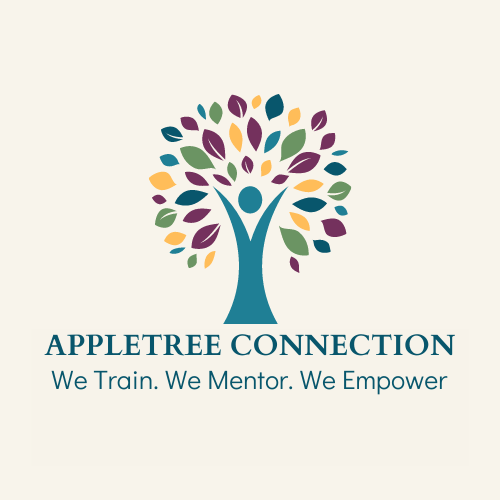
The RBT Competency Assessment: What is It, and How to Pass It
But, it can also be scary if you’re unsure of the essential steps to get there. And with so many resources out there, you would think it would be easy to access the right information. However, you know as well as I do that finding correct and helpful information regarding the process is like asking for money to fall from the sky.
This is why I created this resource guide on everything you need to know about the Competency Assessment, a critical step towards earning your RBT credential and serving people with your helping heart. We have an entire blog series dedicated to your RBT career, but this article is specifically dedicated to the Competency Assessment. I’ll cover what to expect, how the process works, and how you can ace it!
When does it take place in the RBT process? What are the prerequisites?
The Behavior Analyst Certification Board (BACB) is the credentialing board you will apply with to become a RBT. You must be at least 18 years old with a High School diploma or higher. They require that the Competency Assessment be completed after you pass the 40-hour Training Course. An important note during this step, you will also need to prove you have passed a Level 2 background clearance in the past 6 months. Your Responsible Assessor will help you with this. (I will cover their role later in this article). So, if you already work in an industry that requires a background clearance, you may have to get a new one to meet the 6 months or less rule. For a reference on the full process, read this article: How to Get RBT Certified
What does it look like? Understanding the Structure of the Competency Assessment
The assessment includes 20 tasks/questions divided into four main sections: Measurement, Assessment, Skill Acquisition & Behavior Reduction, Professionalism & Requirements. These are condensed from the 34 tasks covered in your 40-hour training, focusing on core skills. Tasks are assessed in three ways: with a client, through role-play, or via interview. Importantly, under the section titled: Skill Acquisition & Behavior Reduction, three of the tasks must be completed with a client. The BACB defines client as “anyone (i.e., a person or a group of people) who receives behavior-analytic services in any setting” (click her for reference)
Who conducts your Competency Assessment?
The BACB refers to this person as a Responsible Assessor. Your Responsible Assessor becomes your first supervisor. These are the qualifications for their role:
- A BACB-certified professional (BCaBA or BCBA) who has completed 8 hours of supervision training oversees the Initial Competency Assessment.
- Can be employed by or have a contractual relationship with the same organization as the client(s) receiving services
- Employment at the same organization as the applicant is NOT required
- The assessor can delegate to an assistant assessor - so you may have a few people conducting your assessment.
- The responsible assessor, assistant assessors, and the RBT applicant do not need to be employed by the same organization. However, the organization providing the assessment must also be the one serving the client. This requirement applies throughout the assessment process.
A few more thing to note: - Having a contractual relationship with the organization where the client is receiving services is acceptable (this means you can find a company to conduct your assessment, as long as they have a contract in place with the client you are serving in your assessment)
- The assessor can delegate to an assistant assessor - so you may have a few people conducting your assessment.
- The assistant assessor does not have to be certified by the BACB, and the responsible assessor is the one who is accountable for the work.
- No matter who you choose, you can not be related to or the employer of of any of your assessors.
- Payment for assessment services does not count as employment.
How to find a Responsible Assessor:
· Search BACB’s website: for BCBA or BCaBAs in your zip code to see if they are willing to become your Responsible Assessor and dedicate the time to complete your Competency Assessment. They must be willing to be your first supervisor. They will either charge you a fee or require you to work for them in exchange for the assessment.
· Employer-Assisted: Find an employer in your area, most likely an ABA company, who has a BCBA or BCaBA willing to dedicate the time to complete your Competency Assessment and agree to be your supervisor during the process. Historically, companies willing to conduct Competency Assessments will do so as a contingency of your employment with them. In other words, you must agree to work for them, and then they will conduct your assessment.
· Company Dedicated to Training RBTs: Find a company that specializes in RBT training and career development to conduct yours privately. Provide you with a qualified Responsible Assessor to serve as your first supervisor. You are making an investment in your career and being formally trained, mentored and empowered.
Do you have to pay for a comp assessment? If so, How Much?
Depending on the way you choose to have your Competency Assessment conducted, you may have to pay. It’s your decision – is the investment in yourself worth it, or do you want to find an employer to work for and save the money. This is a personal decision, as well as a timing decision. In the case that you are unable to find an employer willing/able to conduct yours at no cost, you may decide to pay and move your career along faster. The investment may be between $400 - $1000,
Each option has its pros and cons. For instance, if you can secure an employer-assisted assessment, it may guarantee you a job but might limit your future employment options. On the other hand, a private assessment offers the flexibility to search for a job that feeds your passion. Once you become fully certified as a RBT, you will be a free agent. That flexibility comes with a monetary investment.
How long does it take to complete?
The Competency Assessment varies in duration, depending on your assessor, the setting, and the amount of feedback needed. Since this is a demonstration of skills vs. a timed exam, the Competency Assessment can take a few hours, a few days or a few weeks. It's essential to be prepared for feedback, since this is the first time you are demonstrating these skills. The BACB allows corrective feedback in any areas where you didn’t initially pass. This gives you a chance to retry, after 24 hours,
Common Pitfalls: Why RBT Applications Get Denied
Once you pass your Competency Assessment, you submit your application to the BACB. According to their data, up to 24% (1900 of 800 per month) of applications get denied due to a variety of reasons. To avoid this, ensure that all the information required on your Competency Assessment form is filled in correctly, including your BACB id, which is the number assigned to you by the BACB when you create your account. To avoid this common mistake, create your BACB account prior to having your Competency Assessment conducted. Then enter your BACB id on your Competency Assessment form. We cover this in our guide: How to get RBT certified
How to pass a Competency Assessment
Preparation is key to passing the Competency Assessment. Here are some tips:
- Know the Content: Review the 20 items on the Competency Assessment It is important to note the Competency Assessment has been updated multiple times since it was first created in 2014. Ensure you are using the latest versions, which can always be found on the BACB website. The link provided is for the 2024 version.
- Revisit your 40-hour Training material: Review your 40-hour course notes and make sure you have an understanding on how to apply the concepts, not just their definition.
- Practice Makes Perfect: One of the best ways to prepare is to practice the skills you learned in your training. Engage in mock scenarios or role-playing exercises to sharpen your skills.
- Be prepared to receive feedback. Nobody starts off as perfect. It’s part of the process.
- Ask Questions: Don’t hesitate to seek clarification. You can ask your BCBA or a mentor for help if you’re unsure about any aspect of the assessment.
- Stay Calm: Remember, the Competency Assessment is just a chance to show what you know. Take your time, stay calm, and do your best!
I asked some experts, from AppleTree Connection’s Employer Partner Program, to share words of encouragement for competency assessment preparation. Here is what they said:
“RBT graduates should thoroughly review core competencies and practice key skills like data collection and behavior intervention. Understanding and being able to discuss specific treatment plans, as well as adhering to ethical guidelines, is crucial. Graduates should approach supervision as a growth opportunity, asking questions when needed and maintaining a positive, confident demeanor throughout the process. Proper preparation and active engagement will help demonstrate readiness for the RBT role”
~ Hickory Learning Group
“Be prepared to encounter maladaptive behaviors in the field. Be patient and understand that change takes time and isn't immediate. Be flexible. No one client is the same, one intervention that has worked with one may not work for the next so it is important to see clients as individuals”
~ Bloom Behavior Services
I hope this article serves as a guide to understanding what the Competency Assessment involves, how to prepare, and who can help you along the way. My hope is that you feel better equipped to succeed. Stay tuned for our upcoming podcast episode where we dive deeper into these topics and share more insights on how to pass the Competency Assessment with flying colors and rock out your career as a Registered Behavior Technician.
